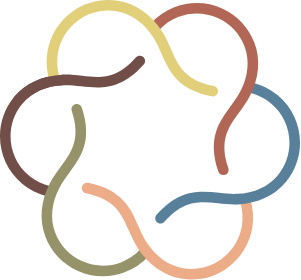Article Highlights:
For those who thrive on connecting with others, social distancing presents a unique challenge. In this article, you’ll discover three expert-backed rules for surviving including:
- Heeding health recommendations
- Using your extroversion for good – right now
- Learning to embrace your inner introvert
In a sea of COVID-19 social media memes, this one caught my eye yesterday.

These are the days introverts were born for. In our collective lifetime, there has never been a better excuse than social distancing for canceling plans, staying home, and baking cookies. Introverts are set. Yet, extroverts are in crisis. No more water cooler chats. No after-work happy hour. No more showing up for meetings to sit around a table and work things out face-to-face. For the outgoing “people people” among us, the struggle is real.
You’re probably familiar with the difference between introverts and extroverts. You likely know which type you are. (If you have some spare time and would like to explore the spelling variants, do a Google search on “extravert vs. extrovert.”)
Carl Jung, the renowned psychoanalyst, advanced the theory of two personality types: introvert and extrovert. Broadly explained, Jung believed that extroverts direct their energy toward other people. Further, extroverts gain energy — or a sense of balance and wellbeing — from interacting with others. Introverts, meanwhile, do their best when they have quiet, self-reflective time included in their day.
I reached out (on the phone, of course) to Jordan K. Harmon, a licensed clinical social worker, about how extroverts can practice safe social distancing — without withering away. So, fellow extrovert, before you panic at the thought of being caught alone with your thoughts, here are three tips you can put into practice today.
1. Follow public health advice
Yes, if you’re an extrovert, the idea of social distancing goes against the very core of who you are and what keeps your motor running. But to slow the spread of the virus and #FlattentheCurve, it’s important to heed public health advice to stay home and limit the number of people with whom you come into contact, regardless of your personality type.
“It might be harder for extroverts to do this because they’re used to being in groups — and initiating those group gatherings,” Jordan acknowledges. But while it may not be possible to live your best social life right now, you can still stay true to your extrovert tendencies.
“Many extroverts naturally like to be busy. So, look around your house for the projects you’ve been meaning to do for years, and tackle them,” Jordan suggests. And don’t be afraid to get outside, while heeding recommended precautions. “There’s no recommendation not to go outside. Just be more remote. You can still go on a hike. Just keep the recommended distance away from fellow hikers.”
2. Now, more than ever, use your people skills
Just because we may be physically cut off from others doesn’t mean we have to be mentally disconnected. “Think about your extroversion as a strength that exists in the world in general,” Jordan says. “Yet, in a socially isolated world, it might feel like those strengths are being negated. Don’t allow them to be stripped away.”
In addition to taking care of their own social needs by staying in touch with friends on social media, over video apps like FaceTime, via texts, and on the phone, extroverts can use their passion for connecting to help other individuals who also may be feeling isolated right now.
“Use your inner nature as an advantage,” Jordan says. “Start a YouTube Channel. Start a Facebook group. People who are extroverts are natural leaders and are naturally charismatic. Take that drive and charisma into the virtual, social media-driven world as a way of capitalizing on your natural strengths.”
At our agency, Stoke, remote teams have always connected virtually, using tools like Zoom video conferencing for meetings. And while such technology is key to maintaining a personal business touch right now, extroverts should use these platforms not only for business but also as a way to inject a dose of camaraderie in the office, just as they always have. Whether it’s a virtual lunchroom or happy hour, you can use the tools available to feel close to colleagues while you’re apart. As office ringleaders, don’t be afraid to take the lead by setting up activities and groups.
3. Get acquainted with your inner introvert
Just because your quiet side is rarely seen, doesn’t mean it doesn’t exist. Now is the time to engage that side of yourself in the name of long-term, positive growth.
“Carl Jung believed that the parts of our personality that we don’t identify with are still there and that it’s important to learn to integrate those parts within us. This is an amazing opportunity to grow in those ways,” Jordan says.
While it may not be easy for natural extroverts, spending a little time indulging your inner introvert can help you emerge on the other side of this crisis more self-aware and with an ability to connect with people more deeply than you do now. Whether it’s journaling, meditating, sketching, or reading, Jordan advises carving out some calm, quiet time each day — even if it feels weird.
“A physical workout can cause aches and pains in muscles that haven’t been used before. Likewise, for extroverts, working out your introverted muscles can generate an initial amount of pain,” Jordan says. “Even though it might feel uncomfortable at first, this is a time to expand that part of yourself.”
As with all things that take effort, the pain lessens and strength increases. We come out better in the end than we were in the beginning.
So, extroverts, unite! Continue to reach out and bring people together, albeit using the tricks up your tech sleeve. Seize this opportunity to come off conqueror as a better-rounded individual who knows how to incorporate the best of both extrovert and introvert strengths.
See you online.
David Acheson is managing director of The Stoke Group, a digital marketing agency that does creative, content, and analytics work for companies such as Adobe, Micro Focus, and Johnson & Johnson. He can be reached—online!—at david@thestokegroup.com.
You can learn more about Jordan Harmon and his work at https://harmonpsychotherapy.com/.
For more helpful tips on harnessing your creativity, working productively, and industry trends, check out the Stoke Blog. And if your business is in need of a creative partner, schedule a free consultation with Stoke today.



